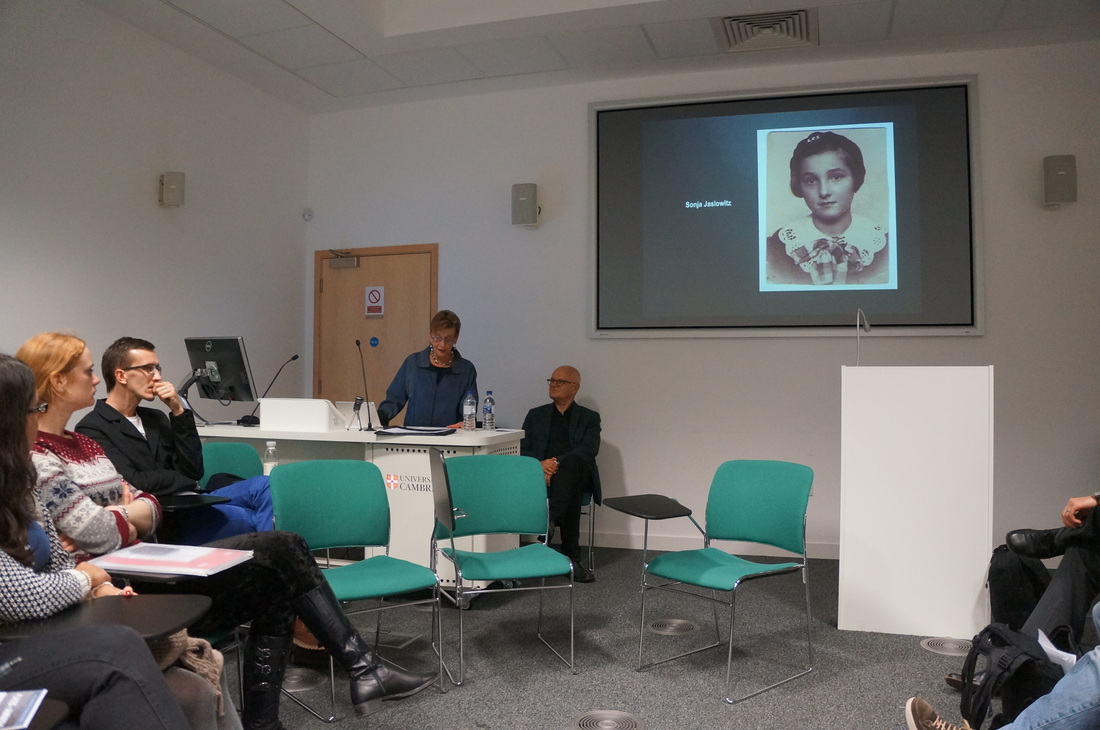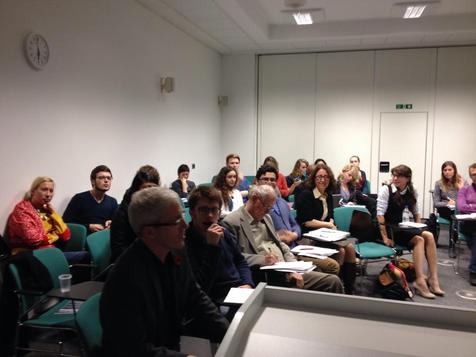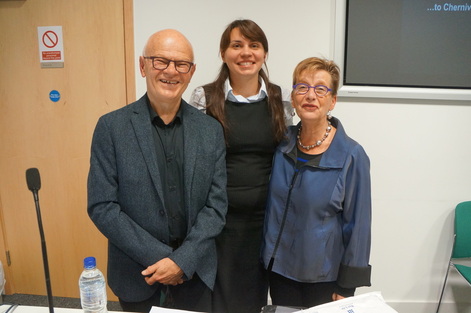On 30th October I met Marianne Hirsch and Leo Spitzer at Places of Amnesia in Cambridge. After a brief but very interesting tour of Cambridge by Gruia we all took seats at ARB to engage in the workshop by Marianne and Leo entitled The Unclaimed Legacy of the Romanian Holocaust. The respondent was my supervisor Rory Finnin. The talk attracted students from different departments and faculties as well as non-students interested in the topic.
The presentation was about acts or reparation, a concept developed by Melanie Klein, for those who survived the Holocaust in Transnistria and some parts of what is now Southwest of Podillya in Ukraine. I personally never knew about concentration camp Cariera de Piatra in Vapniarka, now a military settlement. Dori Laub's family was sent there! It was shocking to learn that Transnistria disappeared from Jewish cultural memory - it is a place of amnesia.
Marianne and Leo spoke of how mourning of the object is complicated by frustration, inadequacy, admiration - by legacy of the past. The question remained open - how do you mourn? How can you divorce from the form or from the space in your memory? It was suggested that every witness or survivor can restore if they are committed to tell a coherent narrative of trauma in different forms and shapes and got a non-sceptical venue to tell. Leo explained how to use sources that cannot be conventionally verified - here memory studies can help. Obviously, you have to take trauma into account. Now historians are trying to incorporate all evidence.
The talk was followed by discussion during which many important questions were raised and answers offered how nations are using their traumas to substitute spaces for their crimes in the national narrative? How efficient are these places of amnesia and do they pose danger for establishing solidarity? Can you really repair what has been lost?
This workshop proved to be useful and interesting - interacting with celebrated scholars like Marianne Hirsch and Leo Spitzer is always inspiring and encourages further research.
The presentation was about acts or reparation, a concept developed by Melanie Klein, for those who survived the Holocaust in Transnistria and some parts of what is now Southwest of Podillya in Ukraine. I personally never knew about concentration camp Cariera de Piatra in Vapniarka, now a military settlement. Dori Laub's family was sent there! It was shocking to learn that Transnistria disappeared from Jewish cultural memory - it is a place of amnesia.
Marianne and Leo spoke of how mourning of the object is complicated by frustration, inadequacy, admiration - by legacy of the past. The question remained open - how do you mourn? How can you divorce from the form or from the space in your memory? It was suggested that every witness or survivor can restore if they are committed to tell a coherent narrative of trauma in different forms and shapes and got a non-sceptical venue to tell. Leo explained how to use sources that cannot be conventionally verified - here memory studies can help. Obviously, you have to take trauma into account. Now historians are trying to incorporate all evidence.
The talk was followed by discussion during which many important questions were raised and answers offered how nations are using their traumas to substitute spaces for their crimes in the national narrative? How efficient are these places of amnesia and do they pose danger for establishing solidarity? Can you really repair what has been lost?
This workshop proved to be useful and interesting - interacting with celebrated scholars like Marianne Hirsch and Leo Spitzer is always inspiring and encourages further research.



 RSS Feed
RSS Feed
